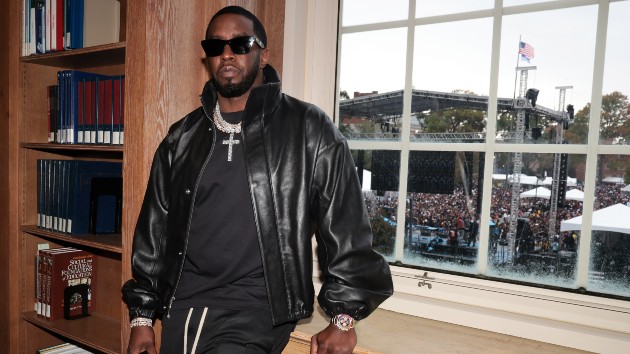MAP: The impact of anti-DEI legislation
Written by ABC Audio. All rights reserved. on April 5, 2024

At least 10 states have implemented restrictions on diversity, equity and inclusion, or DEI: Alabama, Florida, Idaho, Indiana, North Carolina, North Dakota, Tennessee, Texas, Utah and Wyoming.
Some of these policies ban state funds from being used for diversity-based programs, activities, and offices on college campuses, as seen in Alabama. Some states, like Texas, ban diversity offices at universities altogether. Florida’s law also targets diversity training or programs in private workplaces.
Legislators in at least 19 other states have proposed similar restrictions, although several efforts have failed to pass or were vetoed.
DEI, as defined by professionals in the field, is intended to correct inequities within an organization. This could include implementing accessibility measures for people with disabilities, correcting discriminatory hiring practices, addressing gender and racial pay inequities, anti-bias training and more.
DEI practices have their roots in the anti-discrimination legislative movement of the 1960s, when the Civil Rights Act and Age Discrimination in Employment Act were born, according to past interviews with DEI professionals.
Though every DEI program may be different, professionals say they are aimed at addressing exclusionary practices concerning race, age, gender, sexual orientation, veteran status, disability, economic class and more.
Anti-DEI efforts spark debate
The recent wave of efforts to target diversity programs seemingly began after the Supreme Court set new limits on affirmative action, a policy that allowed higher education institutions to use race as one factor among many in student admissions to address historical inequalities.
Supporters of legislation against diversity programs claim they promote “radical indoctrination that promotes division in our society,” Florida Commissioner of Education Manny Diaz, Jr. suggests.
“My administration has and will continue to value Alabama’s rich diversity. However, I refuse to allow a few bad actors on college campuses – or wherever else for that matter – to go under the acronym of DEI, using taxpayer funds, to push their liberal political movement counter to what the majority of Alabamians believe,” said Alabama Gov. Kay Ivey when signing an anti-DEI bill in March.
Critics of anti-DEI legislation, including national and state teachers unions and free speech advocacy groups, likened these laws to censorship and say they will halt progress addressing inequality.
“This is all about silencing students,” United Faculty of Florida union’s president Andrew Gothard said in an interview with local news outlet WLRN. “It’s about silencing faculty. It’s about withholding funding from individuals who have beliefs, speak ideas, or take actions that would disagree with the politics of elected leaders.”
Education Secretary Miguel Cardona called legislation targeting DEI “very deliberate attempts to seek division in our schools,” in a recent roundtable, according to the National Education Association, the largest labor union in the United States.
Impact of anti-DEI legislation
Since anti-DEI policies have been implemented, some universities – including the University of Texas, the University of Florida and the University of North Florida – have disbanded offices and programming related to diversity.
The University of Texas discontinued programs and activities within the Division of Campus and Community Engagement and laid off employees in DEI-related positions.
The office said it integrated “access and belonging into the University’s core mission” and connected “intellectual resources to communities across Texas and offer education to those who may face the most significant challenges in accessing it.”
As a result, longstanding UT programs such as “New Black Student Weekend, Adelante, CultivAsian…Latino Leadership Council, Native American and Indigenous Collective, [and] Students for Equity and Diversity,” all have been shuttered, reported the Texas Observer this week.
Earlier this year, the University of North Florida closed its Office of Diversity and Inclusion, including the women’s, interfaith, intercultural, and LGBTQ centers, to comply with restrictions, according to local news reports.
The University of Florida also eliminated all diversity, equity, and inclusion (DEI) positions at the university to comply with recent Board of Governors restrictions.
These changes have come amid ongoing scrutiny against higher education institutions and diversity.
Social inequities have long impacted access to higher education for students of color, poor students, and other marginalized groups – such as economic inequality, segregation and academic inequity in K-12 schools. This has led to the continued underrepresentation of these groups in four-year institutions.
“DEI programs recruit and retain BIPOC, LGBTQ+, and other underrepresented faculty and students to repair decades of discriminatory policies and practices that excluded them from higher education,” said the ACLU in a statement on anti-DEI laws. “The far right, however, claims that DEI programs universally promote undeserving people who only advance because they check a box.”
The NEA has said that schools across the country are shuttering access to information and resources geared toward marginalized groups because of the restrictions.
The group also has said teachers are self-censoring their classrooms when it comes to social or political topics in the classroom because of legislative restrictions on discussions on race, gender and sexual orientation.
They’ve cited concerns over losing their job or lawsuits from angry parents.
This kind of legislation’s ability to hold up in court remains unclear.
Judges have blocked Florida Gov. Ron DeSantis’ “Stop WOKE” Act in Florida from restricting race-related training or programs in the workplace and higher education, arguing that the law’s restrictions are unenforceable and violate the First Amendment.
Copyright © 2024, ABC Audio. All rights reserved.






